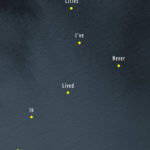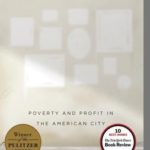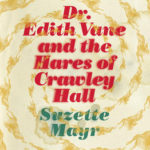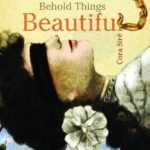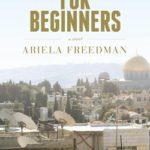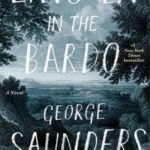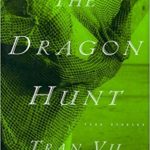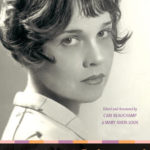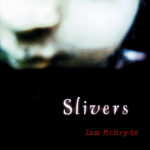Who’s Reading What for Issue 142
We asked our Issue 142 authors to tell us a little bit about what they’re reading. From thought-provoking pieces on poverty to Vietnamese translations, their responses have expanded all of our “to read” lists. Take a look at the books discussed below; we bet you can’t read just one!
N.B.: Where applicable, the books below have been linked to our local partner bookstore, Words Worth Books, in Waterloo, Ontario. If you live outside of the area, we encourage you to seek out these books in your local bookstores. Not sure where those are? Use this handy-dandy website we stumbled upon to help you find the nearest one to you: www.findabookstore.ca
Cary Fagan, “Bear Stories“
Reading:
Majka, Sara. Cities I’ve Never Lived In. Graywolf Press, 2016.
Desmond, Matthew. Evicted. Broadway Books, 2017.
I was just in New York for a month and as a result have been knee-deep in American writers. At the moment I’m three-quarters of the way through Sara Majka’s book of stories,
Cities I’ve Never Lived In (Graywolf Press). She has a beautiful, somewhat deadpan style and there’s something vaguely
mysterious about her characters, as if they’re lives feel almost like dreams. This despite the very specific detail of place (the East Coast), weather, the feel of the air, etc.
I’m also reading Matthew Desmond’s Evicted (Broadway), which recently won a Pulitzer. It’s an extraordinary work of reporting on American poverty, more specifically on the crisis in housing for poor people and the cycle of finding housing, being evicted, and moving again. The portraits of tenants and landlords both are alive and nuanced and this is no simple diatribe. Nevertheless, Desmond shows how, as Black men in America suffer from high incarceration rates, so Black women (and their children) equally suffer from eviction and homelessness.
Philip Huynh, “Mayfly“
Reading: Vu, Tran. The Dragon Hunt. Hyperion Books, 1999.
I’ve recently read a short story collection called The Dragon Hunt by Tran Vu, a Vietnamese writer living in France. They are translated from Vietnamese. The collection begins with a vivid, stark (and perhaps obligatory) tale of a refugee boat run aground on a coral reef. The predicament is dire and the details are striking:
“Every day, as the tide went out, I joined the scrawny phantoms who scoured the reef in search of food, but the coral sea was a dead sea: no shrimp, no shellfish, nothing. Once we found a starfish and a few strands of seaweed, which we boiled up with a bit of rainwater, but the seaweed was gluey and disgusting, the starfish rigid, impossible to eat.”
That story alone is worth the price of admission, but what I admire about the collection is its range in style, geography, and subject matter. It includes a tale of incest and horror in a Paris apartment; a hallucinatory rendering of the ancient town of Hoi An braided into a historiography of Vietnam’s savage treatment of its minorities; a story of a literal dragon hunt that is both magical and macabre. These are not stories that are easy to swallow. The sex and violence go hand-in-hand, and none of it titillates. The language can veer towards the florid. But ultimately, Tran’s graphic and very idiosyncratic and personal storytelling is scaffolding for a subtler reflection on the predicament of all refugees of violence. Something true is said in each of his stories.
Stephen Maude, “Two Poems“
I’m writing stories about an anxious cinephile named Emily who works at a second-run theatre (see TNQ 123 & 141 – THANK-YOU EDITORS!). And it’s Emily who’s got me reading Anita Loos Rediscovered: Film Treatments and Fiction by Anita Loos, edited and annotated by film historian Cari Beauchamp and author Mary Anita Loos, niece and namesake of Anita Loos.
Anita Loos (1888–1981) was a prolific Hollywood screenwriter, author, and playwright. She’s best known for her 1925 novel Gentlemen Prefer Blondes, which propelled her to international fame, spawned a musical and two films, and through its protagonist Lorelei – Marilyn Monroe in the 1953 film – gave us witticisms like fate keeps on happening.
Anita Loos Rediscovered follows Loos from her early days sending stories to D.W. Griffith, through her time at MGM crafting wisecracks for Jean Harlow, to her later success penning plays for Broadway. The book interlaces biographical essays by Cari Beauchamp, Mary Anita’s reminiscences of her aunt, and previously unpublished film treatments, plays, and stories by Anita Loos. I’m impressed by Loos’s creative output and discipline. Almost every morning for over seventy years, she rose at five o’clock to write, producing over 150 works ranging from scripts to memoirs.
For film buffs like Emily, the book provides a peek into the life of a Hollywood insider whose friends included stars Paulette Goddard and Helen Hayes, director George Cukor, and writer Aldous Huxley. Moreover, it invites us to rediscover Anita Loos, a Hollywood pioneer and a star in her own right.
Kevin Shaw, “Lend Me Your Ears: A Border Crossing in Three Acts“
Reading: Mayr, Suzette. Dr. Edith Vane and the Hares of Crawley Hall. Coach House Books, 2017.
At the moment I’m reading Suzette Mayr’s new novel Dr. Edith Vane and the Hares of Crawley Hall. I loved Mayr’s earlier book, Monoceros, which, in a prismatic narrative, reveals how the aftermath of a teenaged boy’s suicide reverberates throughout his school and city. Mayr also sets Dr. Edith Vane in the world of education, but this time she takes on the contemporary university. The protagonist, a Can Lit scholar, attempts to balance tests both professorial (budget cuts, the dean, and the ominous-sounding Academic Achievement Overview) and personal (her girlfriend, therapist, and absent friend.) As I recently finished grad school, this may be the best (or worst?) time to read a biting satire of academia, but the novel provides exactly what I’m looking for in the crawl toward summer: beautiful prose, several (sometimes unsettling) laughs, and a mystery to unravel. The Crawley Hall of the novel’s title, described as a “boxy presence chiding [Edith] like an unfun aunt,” is becoming stranger page-by-page. What I admire most about Mayr’s fiction is how her narratives straddle the edge between the very realistic (higher ed. bureaucracy run rampant) and the very weird (there are, indeed, hares in Crawley Hall.) I definitely recommend it.
Sivan Slapak, “Exposing Our Skins“
Reading:
Siré, Cora. Behold Things Beautiful. Signature Editions, 2016.
Freedman, Ariela. Arabic for Beginners. Linda Leith Publishing, 2017.
Although I’m not in the midst of reading these two books now, I did enjoy them recently: Cora Siré’s Behold Things Beautiful, and Arabic for Beginners, by Ariela Freedman. Both are by Montreal-based writers, published in winter 2016-17; both books are, in their ways, preoccupied with themes that most interest me—exile (whether mandated, self-imposed or emotional), an ever-shifting sense of home/belonging, and the close-up examination of relationships that bind, all against a fraught backdrop.
Siré’s novel takes place in Luscano, a fictional South American country with a recognizable history: with its own ‘dirty war’ not long ago, Alma, arrested and tortured for a poem she wrote as a student, returns to Luscano to care for her mother after a 12-year exile in Canada. Through her, and those who remained, the implications of history—and of literature—are explored. Siré’s writing is crisp and her characters rich and nuanced. It’s an involving story, and travels deftly through political and personal territory with empathy and precision.
Freedman’s novel is set in Jerusalem and follows Hannah, there with her young family for a year, as she navigates intricate questions of selfhood in a city where matters of identity loom large. Having lived half my life in Jerusalem, I was impressed by Freedman’s lens; through Hannah, she captures the experience of the city with the sharp observation of a visitor and the sensitivity of an insider. Throughout the story’s gently-arced plot, the often clashing forces of love and desperation in motherhood, couplehood, friendship and politics are all delicately portrayed, revealing yet deeply familiar. A beautifully written, absorbing read.
Claire Tacon, “Set List“
Reading: Saunders, George. Lincoln in the Bardo. Random House, 2017.
Right now, I’m about 100 pages into Lincoln in the Bardo. George Saunders has been a hero of mine for some time, both for his prose and for his thoughts on writing (the preface to CivilWarLand in Bad Decline and his interview in the Believer’s Book of Writers Talking to Writers are favourites). Initially, I was hesitant with the novel because it deals with the death of a child and I’m a young parent, already primed for anxiety. But I’m glad I took the leap because the book feels extraordinary. Saunders works with a chorus of voices and a blend of fact and fiction, something that could have been unbearably pretentious, but it feels just right here. The communal storytelling produces a huge emotional range and Saunders skillfully undercuts any sentimentality with humour. Also, it’s the first time in a long time that I’ve read a book at the same time as a host of other people, so I’ve been enjoying all the discussion threads on social media.
Alister Thomas, “Voyaging“
Alister Thomas, voyageur of “Voyaging,” savours Slivers, a book of one-line poems:
Unfolded, origami returns from magic to mere paper.
There are no instructions for this maze of days.
I have climbed inside Siberia, and now await you.
By Ian McBryde, “avant-garde,” “gothic,” “performance poet”:
White noise carries too many messages.
Your diamonds are invisible, but hide them anyway.
Asleep, you smell like some as yet undiscovered flower.
A former Waterluvian, now a longtime Aussie denizen:
The desert makes everything wait.
Statues melting on a bleach of lawn.
Old women’s tears weigh more than our planet.
78 pages, 5 monostitches to 1 page:
There are more than fourteen stations of the cross.
A blind girl senses air movement, wonders who has entered.
Ravens outdate us, but we still forget.
Abandoned enjambment & lyrically condensed:
Hours later, the ashes stirring by themselves.
How black is your magic? Call me.
Heart-frantic, a puppy runs after the car that dumped him.
Except for death, everything else fails us.
Christmas, Santa’s claws deep in my throat.
A self-confessed villanelle dilettante, Ian McBryde has five other poetry collections, including Equatorial (“profound joy and profound despair”), Domain (the horrors of World War II), and most recently, The Adoption Order (an adoptee’s introspection).
Why did he choose to be a poet?
“No choice! I’d have to quote Margot Fonteyn whom, when she was asked why she loved to dance, replied, ‘I don’t love to dance. I must dance.’”
__________________

